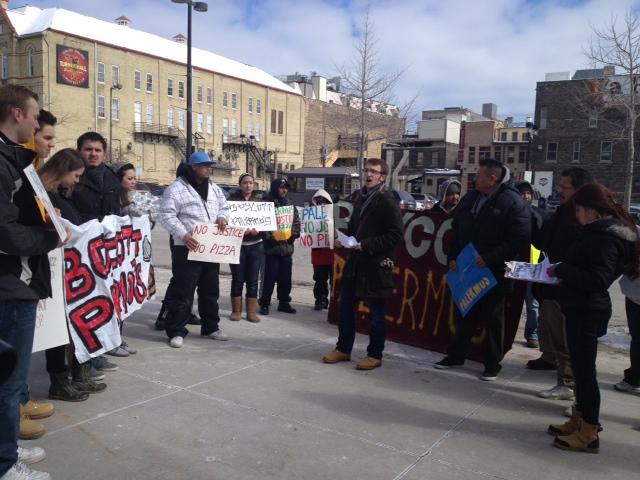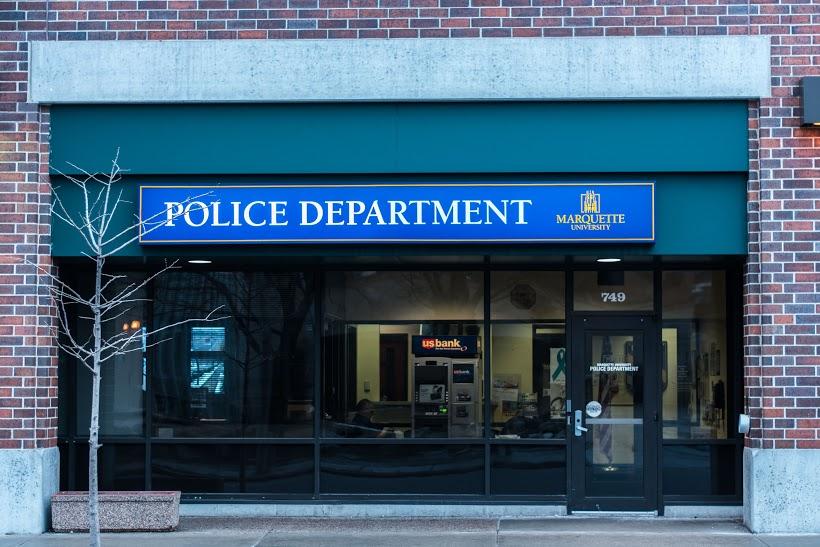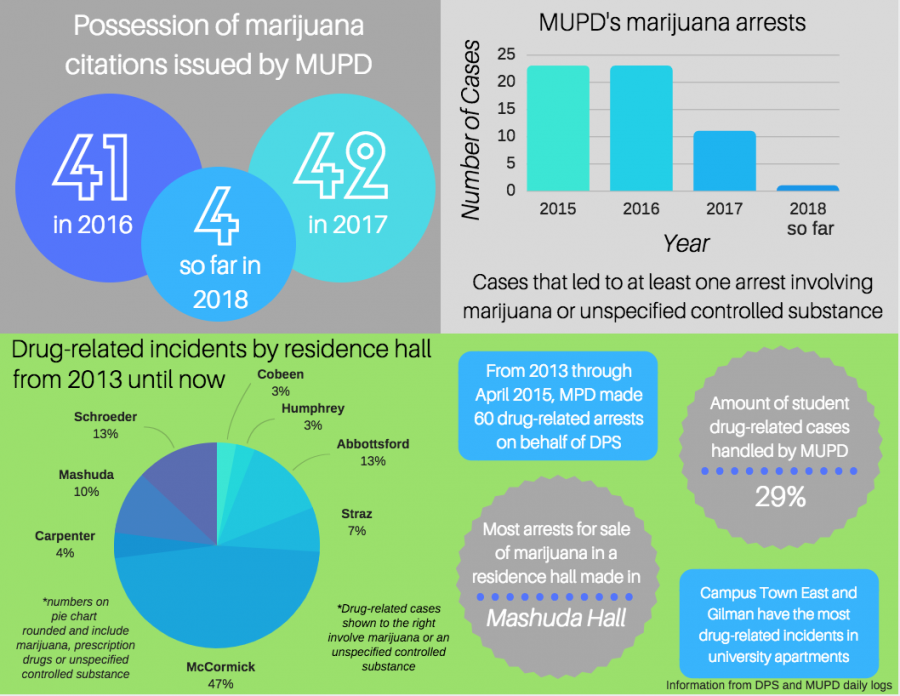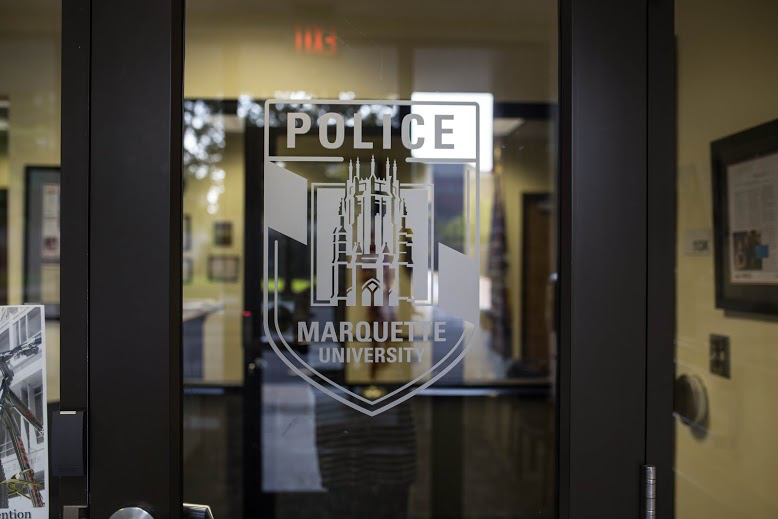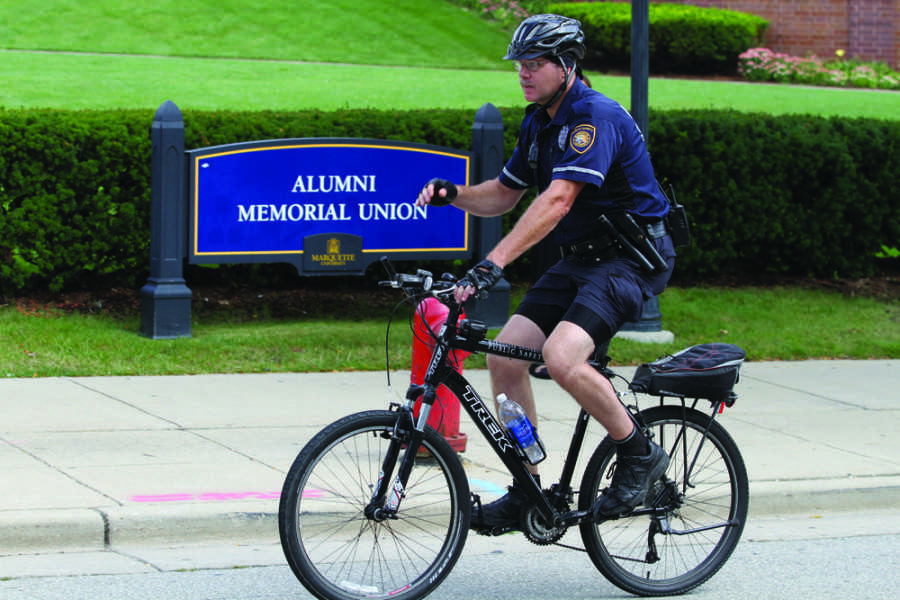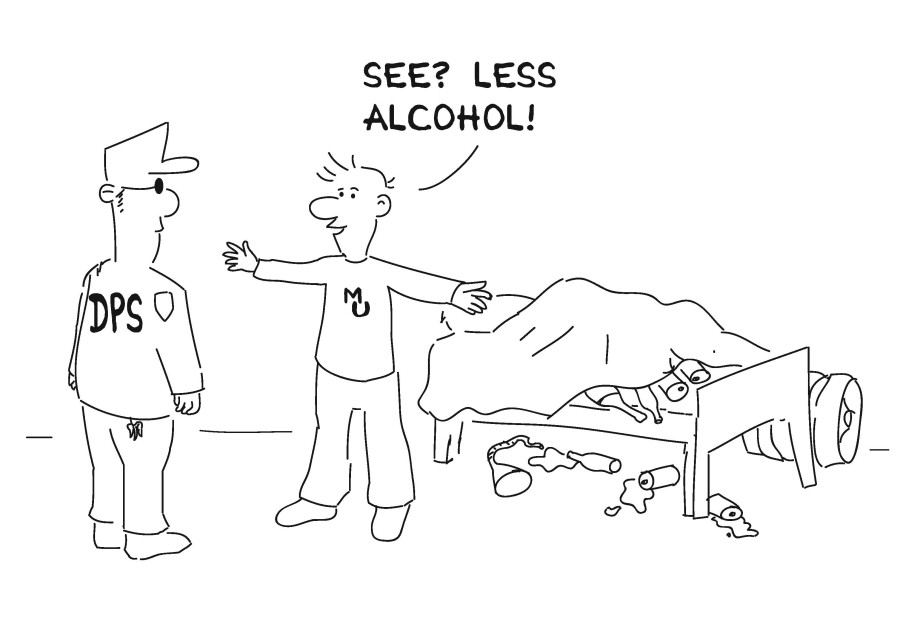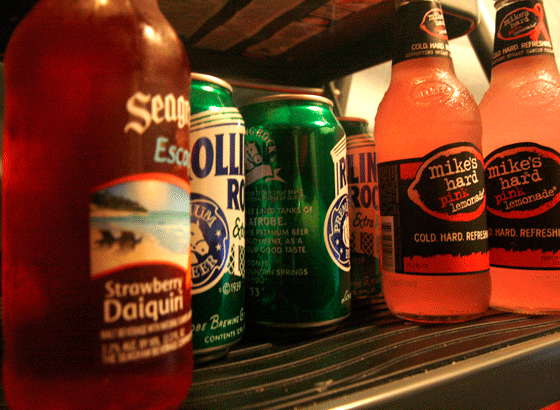
By Nick Biggi and Melanie Lawder
nicholas.biggi@marquette.edu and melanie.lawder@marquette.edu
Mary-Rose Dukelow was with her father Jim at the Marquette-Pittsburg men’s basketball game on Feb. 9 when he was asked for identification after ordering a beer at a Bradley Center concession stand. Jim is 54 years old – and looks like it – according to his daughter.
“He was kind of surprised,” said Dukelow, a junior in the College of Arts & Sciences, adding that it had been awhile since her father was carded when buying alcohol.
To some Marquette students, it seems the Bradley Center’s security has become stricter when it comes to alcohol. The Milwaukee Police Department has been noticeably visible at basketball games, and it is not uncommon to see some of the more rowdy fans escorted out of the student section.
Sergeant Doug Wiorek of the Milwaukee Police Department was at the Bradley Center Feb. 25 for the Marquette-Syracuse game and said he saw “a lot of fake IDs” that night.
“(The Bradley Center’s) been cracking down on fake IDs,” Wiorek said.
Though Wiorek could not provide an estimate for the amount of alcohol-related incidents MPD has been involved in, the sergeant said there was “a number” of cases involving underage alcohol use among students.
Brian Dworak, the general manager of the Bradley Center, said that protocol for combating underage drinking has not changed. He noted, however, that there has been an increase in alcohol-related incidents this year.
“There is no different policy or no different procedure in place for this year, “ Dworak said. “We are seeing a higher incidence of fake ID use and (alcohol) handoffs to underage students.”
According to Dworak, the Bradley Center has resources to help staff discern between fake and real IDs.
“We do have a book in our stands – and have had books in our stands – with information on what a valid ID is,” Dworak said. “And if a stand worker, or someone, sees something that they think is suspicious – they do check and do look for some of the security features for the IDs and verify whether or not it is valid.”
Dworak said MPD is on site for 80 percent of all events at the Bradley Center and that the officers are not specifically contracted out for alcohol-related issues – though they do assist security in such matters.
“We are not explicitly contracting them for that the purpose,” Dworak said.
Though there has been a spike in confiscated fake IDs at the Bradley Center, it hasn’t necessarily corresponded with an increased presence of fake IDs on campus according to some.
DPS Capt. Russell Shaw said he believes most students who use fake IDs use ones they obtained during high school and brought to college. He added that fake IDs have been a problem on college campuses across the country, not just at Marquette.
“I think on many college campuses there’s a culture that permeates the need to have a fake ID, but I don’t believe there’s any more or less of a problem here than in the recent years,” Shaw said. “I think the culture for many starts in high school, and they arrive on campus with their fake identification.”
Fraudulent identification is plentiful at many campuses nationwide, but some Marquette students argue that Milwaukee’s bar culture promotes having a fake ID more than at other schools.
The annual Security and Fire Safety Report released by the Department of Public Safety explained that first-time offenders can get as much as “a $500 fine, mandatory participation in a supervised work program (and) suspension or revocation of the offender’s driver’s license” for being caught with a fake ID.
Shaw said there are usually three primary ways DPS finds students with false identification.
“Usually they were caught with alcohol in their room and admit to using a fake to purchase the product,” Shaw said. “Also, during alcohol-related medical incidents it’s sometimes discovered that a fake ID was used to buy alcohol, and some weekends we’ll actually have several students mistakenly try and enter their resident hall using their fake ID.”
A student, who like others interviewed for this article spoke on the condition of anonymity, attributed most of their friends having a fake ID to the culture in Milwaukee.
“About 85 percent of my friends have fake IDs here,” the student said. “I do think it is essential to campus, because unlike big public schools, Greek life is not as stressed, so people go to the bars.”
A student at the University of Arizona explained that fake IDs are not as prevalent on her campus, mainly because of the campus’s Greek culture.
“Freshman and sophomore year, as long as one of your friends has one, it’s not necessary, because you only go to fraternity parties, and they supply all your alcohol,” the student said.
Another Marquette student said that while most of her friends at Marquette have forms of false identification, there are still other ways for people to have an enjoyable time on campus.
“I would say about 75 percent of my friends at Marquette have fake IDs,” the student said. “Through my experience I know many people do not have fakes and do fine with having a fun social life. However, I think having a fake at Marquette can actually be useful when used appropriately.”
The student’s mother attended Marquette when the legal drinking age was 18, and the student said that her time at the university was fun not just because of the bars along Wells Street, but because it provided a place for students to go safely during the weekends.
“She loved it not because there was drinking so close to where she lived, but because it created a more inclusive atmosphere where people didn’t have to be invited places,” the student said. “They always had a place to go have fun with friends. So the safety problem that has arisen with drunk driving was much lower, because they had to walk a couple of blocks to get home.”





